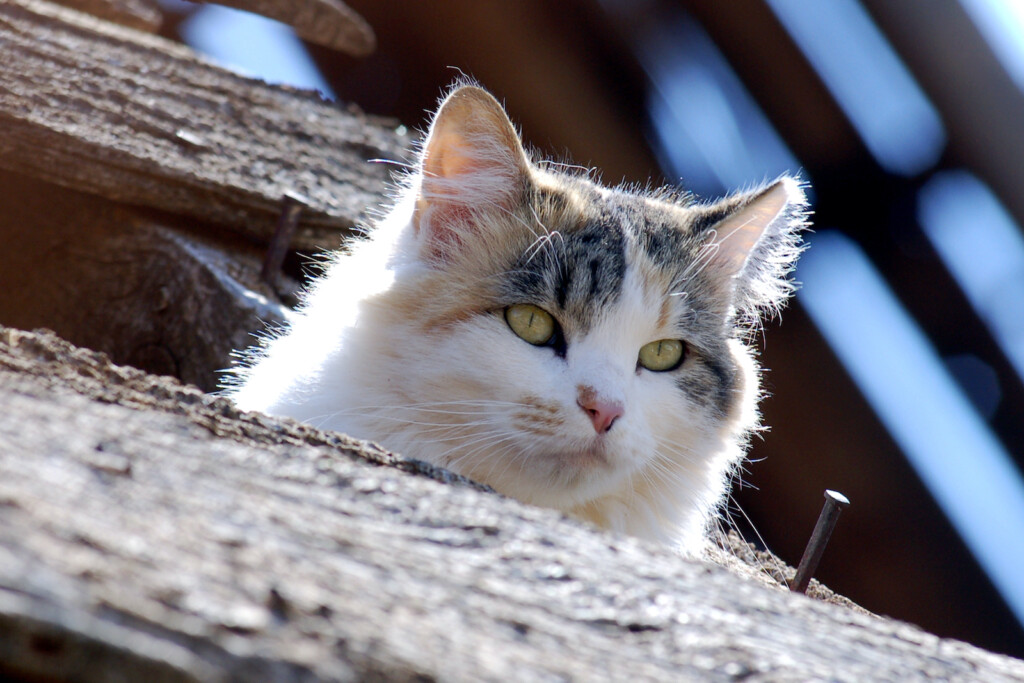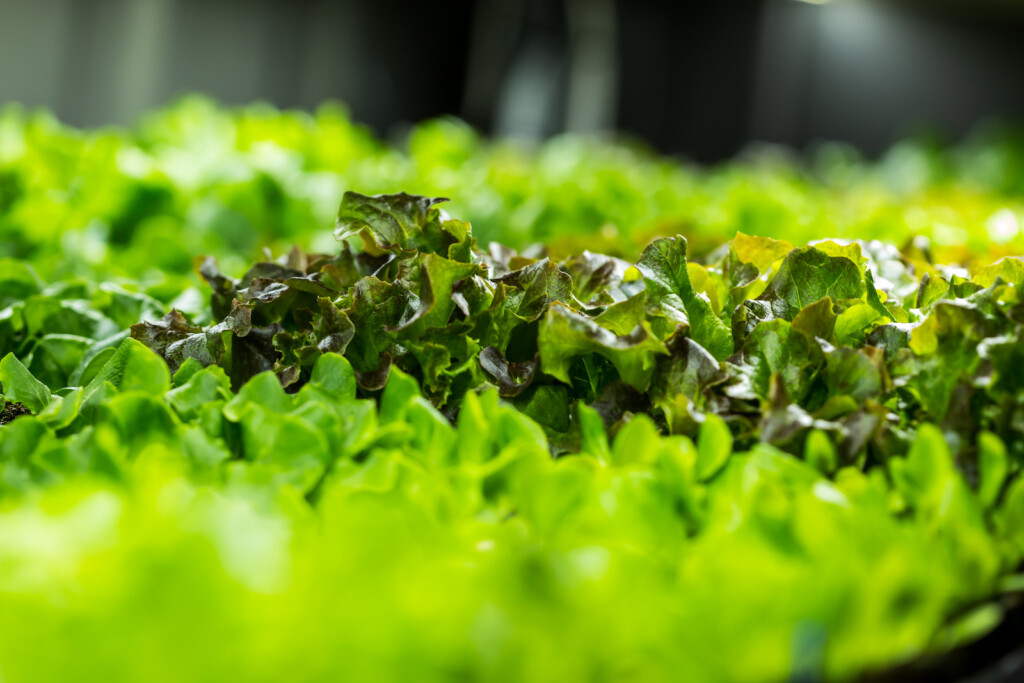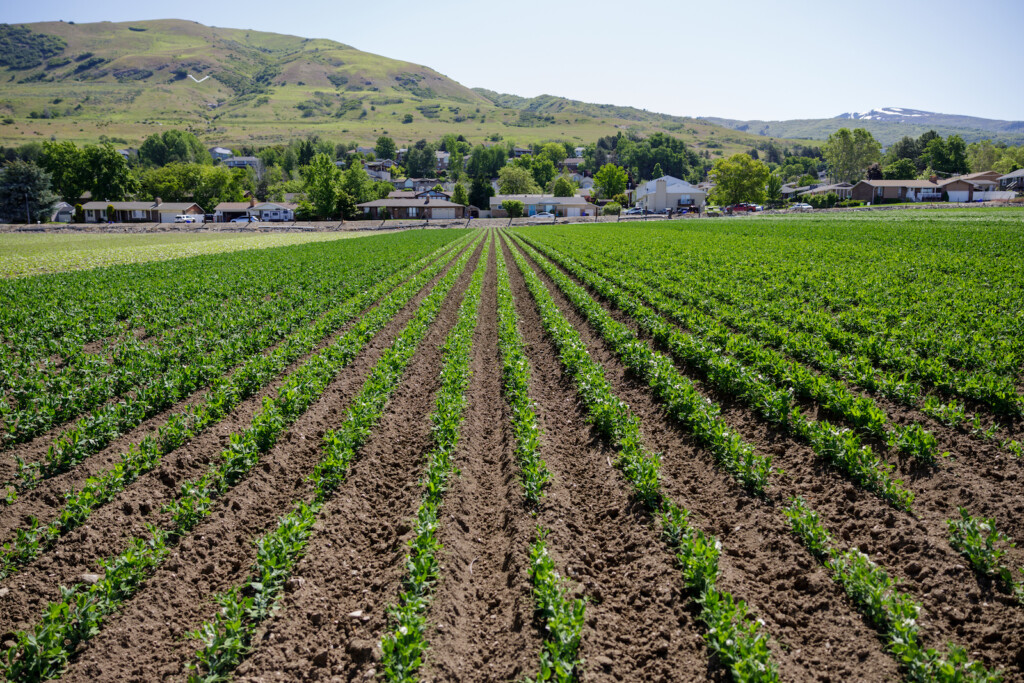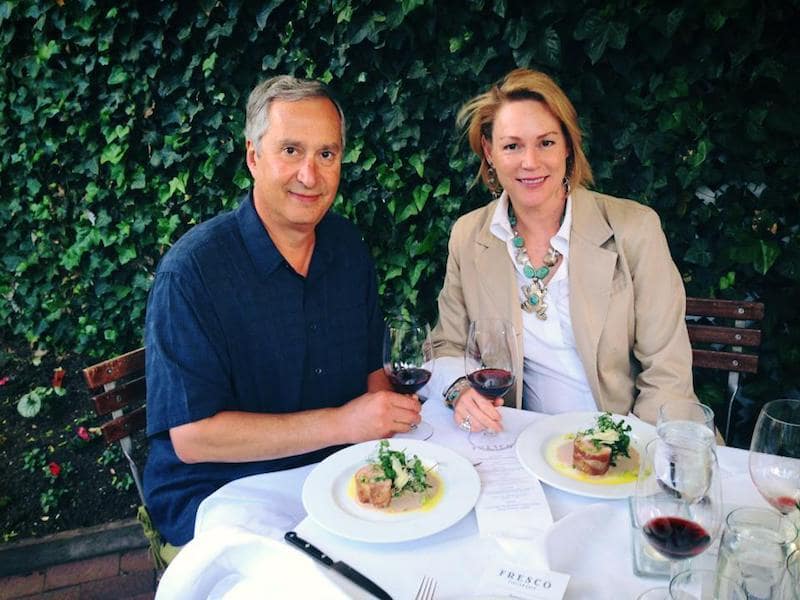
You could drive right past it a dozen times and not even know it’s there. But tucked away on a quiet, residential street in a neighborhood near Foothill Boulevard is an urban farm that supplies produce, cut flowers, microgreens, and more to many of our area’s finest restaurants. It’s called Frog Bench Farms.
Nearly 10 years old now, Frog Bench Farms was created in 2012 by Paula and Joe Sargetakis. Prior to that, the couple had been co-owners of a Napa Valley Winery. I recently chatted with Joe and Paula about urban farming, amateur gardening, supplying restaurants with boutique produce, and where the name “Frog Bench” came from.
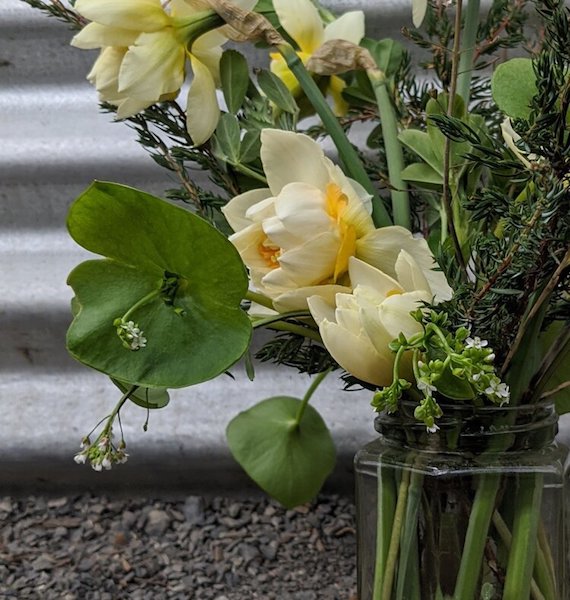
TS: As former winery owners, are there a lot of similarities to growing wine grapes and growing produce on a farm or is it apples to oranges, so to speak?
Paula: I would say it’s apples to oranges in the sense that if you plant a fruit tree or vine, they just stay there and do their thing year after year. Whereas the majority of what we grow is not perennial. So you’re always maintaining; you’re always harvesting, and then rotating into your next crop – there’s constant change.
Joe: Grapevines don’t require as much attention. You’re working a couple of hours every couple of weeks for the most part on the vines. I would say gardening is much more labor intensive and attention intensive.
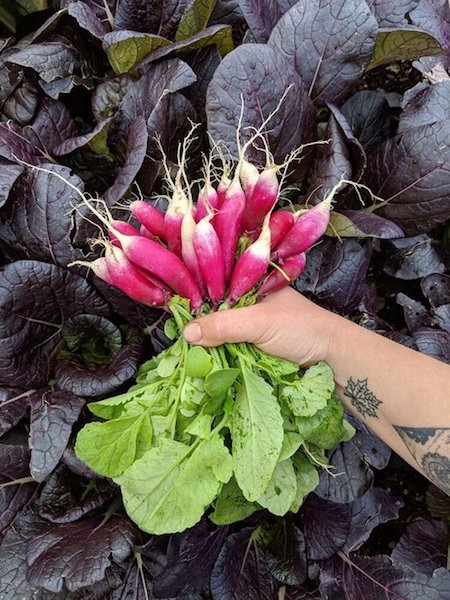
TS: When most people think of farming, they think of rural locations. How or why did you choose to put your farm in the middle of an urban neighborhood?
Paula: I remember us talking at my great grandmother’s house on 7th East about how years ago neighbors would all share produce. Some people could grow tomatoes; others would grow cucumbers, and they would share them. But today most people in Utah can’t walk to a grocery store that sells fresh local produce. So it struck me that we needed that in our society and in our community. So we started looking for a spot for an urban farm and we wanted it to be next to a school so that the kids could see where their food comes from.
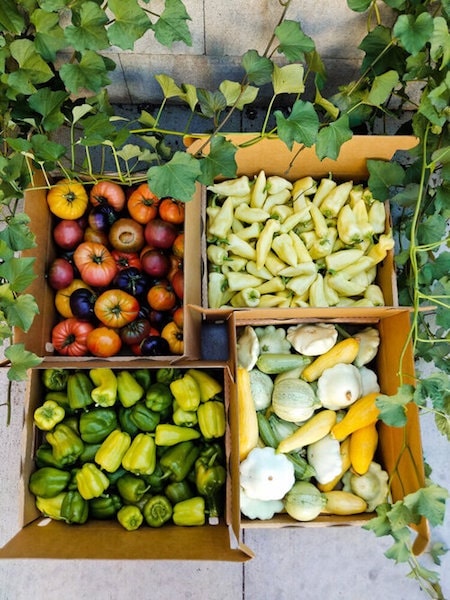
TS: What sort of challenges has the pandemic presented to you during the past year or so?
Paula: Well, business-wise we lost 100 percent of our business in 24 hours, so that sucked. [Laughing] But with restaurants closed we did a pivot and started selling to the public and they have been amazingly supportive. We’ve been really blessed how well things have gone for us.
Joe: We said to our staff, ‘We will keep you employed; we will figure out a way.’ So we got some PPP funds and were able to access some County funds and were able to pay our bills and keep our staff working and now, finally, we’re starting to see some movement again on the restaurant side. It’s been great though – our quasi-CSA Public Pick Up Program – because people are so appreciative to be able to have really fresh, local produce. They can sign up to get a text once a week from us telling them what we have available and if they want anything they just text us back. It’s really been wonderful and once COVID is just a bad memory, we’ll still do it; it’s fun to get out of the garden and meet retail customers.
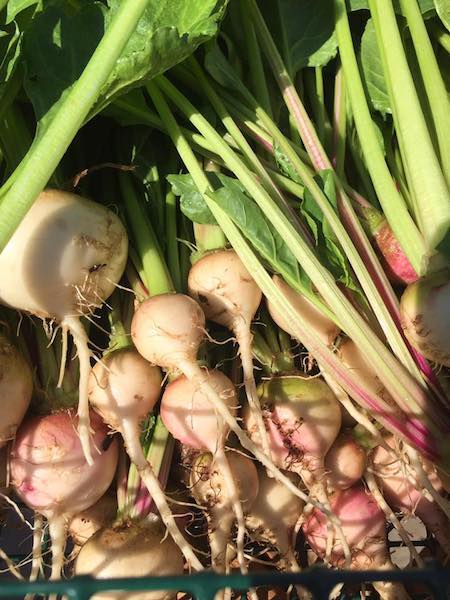
TS: I know this is a Sophie’s Choice type of question. But, do you have a favorite restaurant dish or two that utilizes Frog Bench Farms ingredients?
Joe: A couple of my favorites are at SLC Eatery. They take our Tokyo turnips and frost them with chunky peanut butter and miso sauce and we love it so much that now we emulate it at home. And then they do grilled calamari with popped rice that they use a number of our microgreens with, and that is an awesome dish.
Paula: Microgreens are really underrated. People think they’re just a pretty little garnish, but many of them have very deep flavors, add quite a bit to a meal, and are nutritious as all get out.
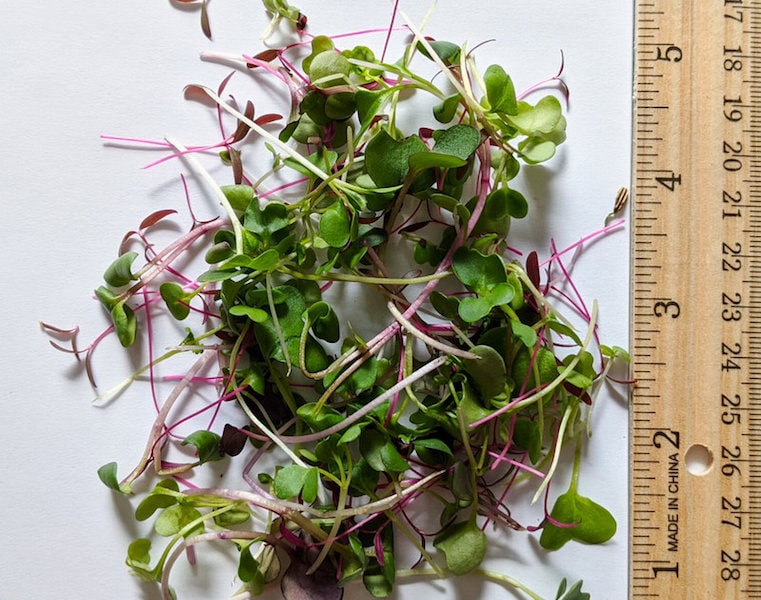
TS: You guys are pros. But what advice or tips do you have for amateur or beginner gardeners to share?
Paula: The first thing to do is to get your soil as healthy and nurtured as it can be because it will save you time in the end and whatever you’re growing will be much happier and healthier. And then my second recommendation is just because someone says you can’t grow something, doesn’t mean you can’t. If you want to grow it, give it a try. Pick one thing that you like to eat and grow it in your yard and taste the difference from a store bought vegetable or fruit. And get kids involved in growing and eating fresh foods.

Joe: And don’t believe that you can’t grow all winter long in Utah. We grow lettuce, spinach, turnips and such in January and February. We supply chefs with their favorite produce, microgreens and so on but basically, we grow what we like to eat. When we started the Farm we didn’t have any clients so we didn’t know what to grow. So we grew what we wanted to eat.
TS: So now, the really big question: Where does the name Frog Bench Farms come from.
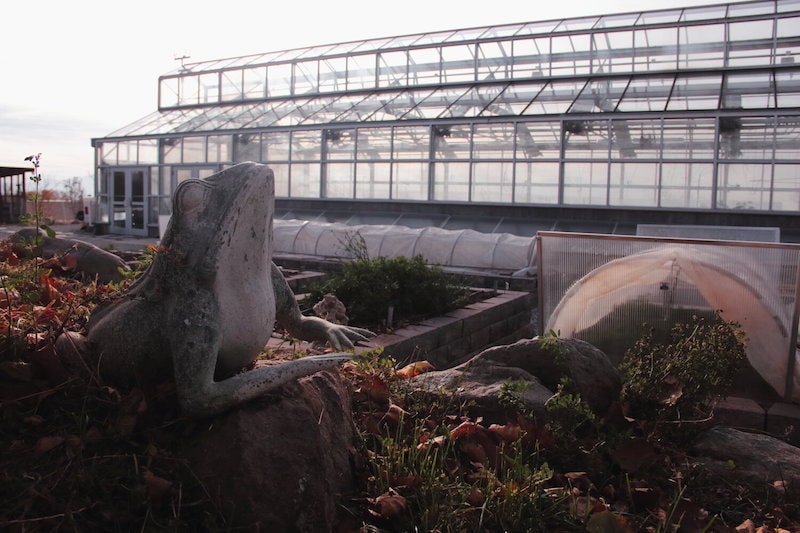
Paula: [Laughing] Well, for some reason my entire life I’ve loved frogs. I don’t know why. And, we’re located up on a bench. And it’s a farm. [More laughter]
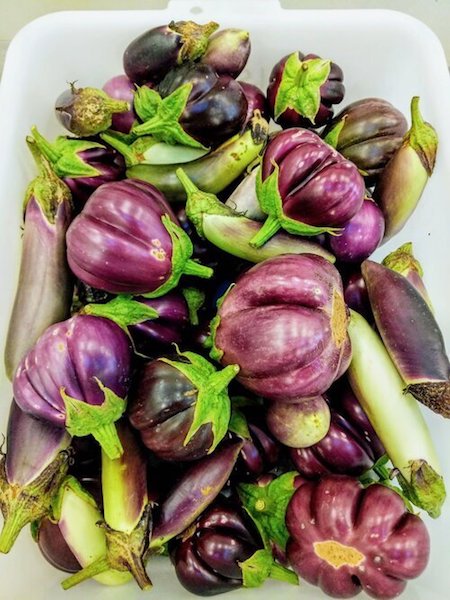
During summer of 2020, Joe and Paula decided to open their Frog Bench Farms offerings to the public. Customers can order exactly what they want online or via text message each week to pick up at the FBF. The array of produce, flowers, fruits, veggies and such changes from week to week. For example, this week featured baby kale, beets, black eyed Susans, microgreens, carrots, cherry tomatoes, edible flowers, fresh garlic, and dozens of other items. Just go to the FBF website and click on the Online Store tab to see what’s available.
Local restaurants and businesses supplied by Frog Bench Farms include SLC Eatery, Pago, Table X, HSL, Oquirrh, Avenues Proper, Beltex Meats, Brickyard Bar, The Blended Table, Post Office Place, Provisions, Nohm, SLC Pop, Stratford Proper, Zest, Tulie Bakery, White Horse Spirits & Kitchen, and Trio.
Culinary quote of the week:
“How luscious lies the pea within the pod.” — Emily Dickinson
FOR MORE RESTAURANT REVIEWS GO HERE.
THIS CONTENT IS FROM UTAH BITES NEWSLETTER.
Subscribe to get the latest Utah Bites news and reviews
 Originally trained as an anthropologist, Ted Scheffler is a seasoned food, wine & travel writer based in Utah. He loves cooking, skiing, and spends an inordinate amount of time tending to his ever-growing herd of guitars and amplifiers.
Originally trained as an anthropologist, Ted Scheffler is a seasoned food, wine & travel writer based in Utah. He loves cooking, skiing, and spends an inordinate amount of time tending to his ever-growing herd of guitars and amplifiers.
SUPPORT OUR SPONSORS: click on their logos to visit their website
[nextcode_gallery id_gallery=”4″]


